In a world where love’s boundaries are continuously being redrawn, same-gender marriage stands as a testament to the power of love and acceptance. Gone are the days when the concept was just a distant dream. Today, we’re witnessing an era where legal rights for same-gender couples are not just an aspiration but a reality in many parts of the globe. This shift isn’t just about legal documentation; it’s a profound reflection of evolving societal norms and a greater embrace of LGBTQ+ rights.
As we trace the trajectory of same-gender marriage acceptance, it’s fascinating to see how far we’ve come. From a time when barely a quarter of the public supported such unions, we now see countries like Sweden and Canada showing overwhelming support. This transformation isn’t confined to liberal nations alone. Countries with diverse cultural and religious backgrounds, including parts of Asia and Latin America, are also joining this wave of change, albeit at varied paces.
This increasing acceptance is mirrored in the steadily climbing numbers. In places like the United States and Australia, same-gender households are not just a statistic. They represent a vibrant, integral part of the community fabric. The rising social acceptance is clear evidence of a global shift in mindset. People are increasingly recognizing that love, in all its forms, deserves recognition and respect.
But the journey towards universal acceptance of same-gender marriage isn’t without its challenges. Political, religious, and cultural factors continue to shape opinions and laws across the globe. Yet, amid these challenges, the resilient spirit of love continues to break barriers, weaving a narrative of hope, equality, and inclusivity.
As we explore the 10 Most Interesting Facts About Same-Gender Marriage, let’s keep in mind that each fact is a chapter in the larger story of love’s triumph over prejudice.
10 – The First Country Ever To Legalize Same-Gender Marriage

The Netherlands was the first to legalize same-gender marriage. The European country did so in 2001.
09 – Homosexual Marriage IS NOT a Civil Rights Issue
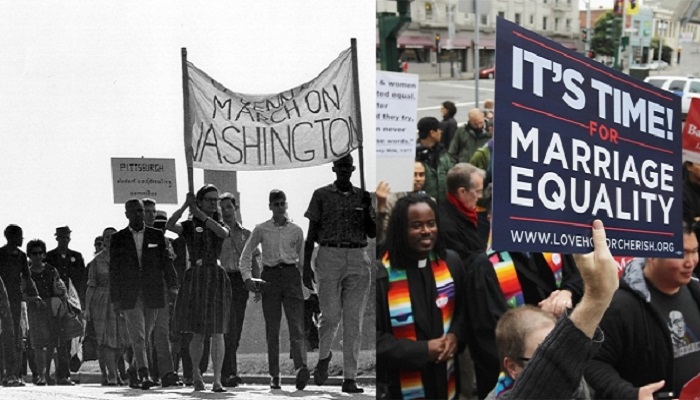
When defining marriage as the union of a man and a woman, it’s clear that it does not violate the basic civil rights of homosexuals. In fact, you can search the Bill of Rights yourself and you’ll find that in no way does it forbid homosexuals the rights enjoyed by any other citizen, included of which is the right to marry. However, it’s important to take note that no citizen has the right to marry anyone he or she pleases. This is why a person can’t marry a child, a close blood relative, have more than one spouse, or marry someone who’s already married. These are restrictions based on the accumulated wisdom of the societies and culture of many civilizations around the world.
08 – Legalization of Same-Gender Marriage is Inevitable
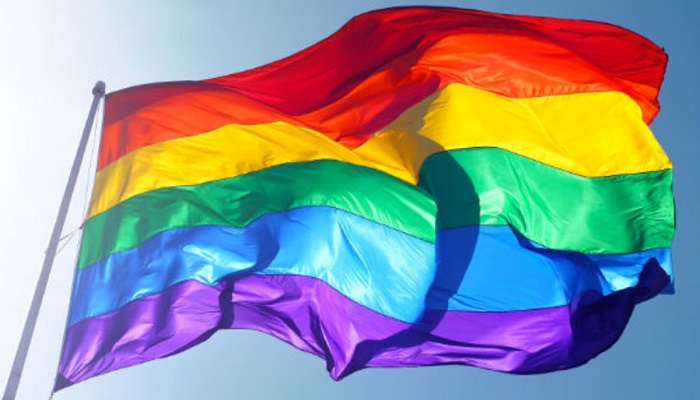
According to a recent Pew Research Survey, 72% of people in America alone believed that it was inevitable for same-gender marriages to eventually gain legal recognition. This 72% included at least half of those who said that they opposed gay marriage.
07 – U.S President Obama Makes History
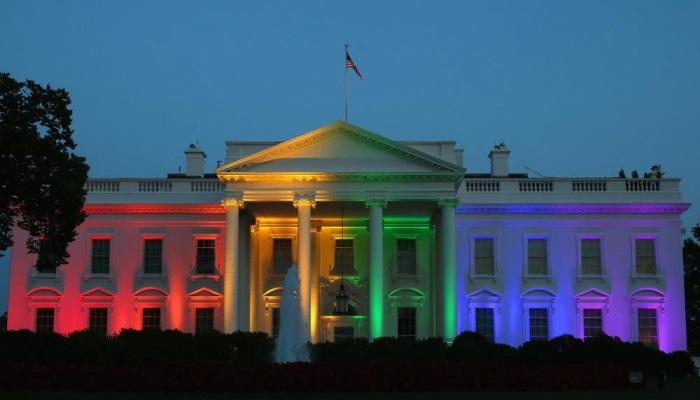
The Obama administration’s official ruling on same-gender may have allowed President Obama to make history as the first U.S president to do so. But, it’s actually been a long time coming.
In 2012, President Obama told ABC news that, “I think same-gender couples should be able to get married. Ask your friends and other social influences to show their support for LGBTQ rights. Sign up for Love it Forward.”
06 – Grave Penalties for Homosexuals

Countries such as Iran, Saudi Arabia and Sudan have rather grave penalties for Homosexuals. In said countries, it’s possible for people of the LGBT community to receive the death penalty as punishment.
Other countries that aren’t so friendly with Homosexuals are Turkey, Afghanistan, Nigeria, Uganda, Jamaica, Russia, Singapore, Northern Cyprus and India.
05 – 20 Countries That Allow Same-Sex marriage
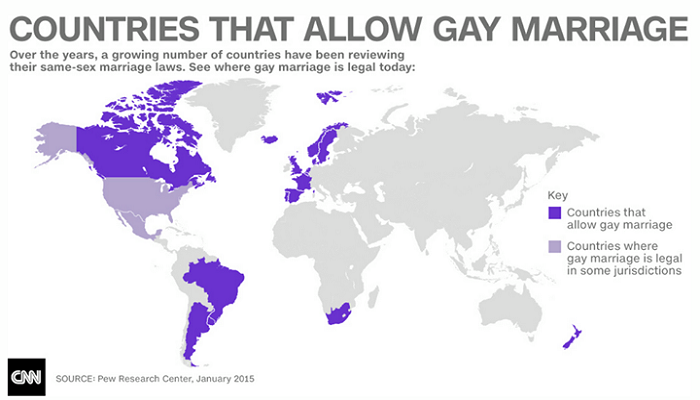
While United States may be one of the most prominent countries to ever allow Same-Gender Marriage, they’re not alone.
Ireland, Finland, Luxembourg, Scotland, England and Wales, Brazil, France, New Zeland, Uruguay, Denmark, Argentina, Portugal, Iceland, Sweden, Norway, South Africa, Spain, Canada, Belgium and of course, as mentioned previously, The Netherlands, all legalized same-gender marriages before the United States.
04 – TV Shows and Same-Gender Marriages

Even if the United States government has long had a strong stance against the total legalization of same-gender marriage, TV shows have portrayed the opposite for quite some time.
In the 1990s, the sitcom “Roseanne” featured a same-gender marriage back in 1995. And, for a more famous example, “Friends”, another sitcom, also featured a lesbian wedding back in 1996.
03 – Native American Tribes That Recognize Gay Marriage
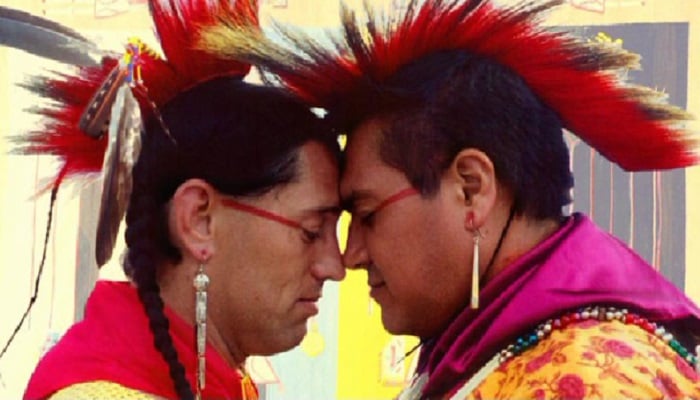
Native Americans actually have a different stand when it comes to gay marriage. In fact, about 11 different Native American tribes recognize same-gender marriage. Included are the Cheyenne and Arapaho tribes, the Mashantucket Pequot Tribe, the Puyallup Tribe and the Coquille Tribe.
It’s also worth noting that Native American tribes are given jurisdiction over many of their affairs and this includes the right to form marriage laws exclusive only to them.
02 – The Legal Rights and Protections of Married Gay Couples

In the United States, married couples are entitled to about 1,138 legal rights and protections from the federal government. Same-sex marriage allows gay couples to enjoy the same benefits, no more and no less.
01 – U.S President Obama’s Benefit From The Legalization of Same-Sex Marriage

Many political experts and analysts believed that U.S President Barrack Obama’s term and how it would go down in history ultimately depended on what occurred in the past week.
With Obamacare and same-gender marriage on-the-line, The U.S President’s ratings would’ve gone all the way down if the key provision wasn’t upheld and the right to gay marriage wasn’t declared by the Supreme Court.
Embracing a Future of Inclusivity and Love
As we conclude our exploration of same-gender marriage, it’s evident that this isn’t just a topic of legal or social debate, but a matter deeply rooted in the fundamental values of love, equality, and human rights. The journey towards acceptance and recognition of same-gender unions is a reflection of our collective progress as a society, one that acknowledges diversity in all its forms.
The transformative impact of same-gender marriage extends far beyond individual couples. It’s about redefining the very fabric of society, breaking down age-old barriers, and building a world that celebrates love in all its expressions. The resilience and courage of the LGBTQ+ community, along with the support of allies, continue to pave the way for a future where love is not constrained by gender.
Looking ahead, the road to universal acceptance of same-gender marriage remains a path filled with both challenges and opportunities. Each step forward, every legal victory and shift in public opinion, brings us closer to a world where all relationships are valued equally. As we witness increasing global support and changing attitudes, there’s hope and optimism for a more inclusive and loving world.
Global Trends and Statistics in Same-Gender Marriage
The landscape of same-gender marriage has been rapidly evolving across the globe. Understanding these trends and statistics is essential for grasping the social and cultural shifts in attitudes towards same-gender couples. Let’s explore the latest data and what it reveals about the world’s view on this important topic.
Global Overview
Support for same-gender marriage varies widely around the world. Surveys conducted by the Pew Research Center in 32 places have shown significant differences in public opinion. For instance, in Western Europe, nations like Sweden, the Netherlands, and Spain show overwhelming support, with at least 80% of adults in favor. In contrast, African countries like Nigeria display minimal support, with only 2% backing same-gender marriage rights.
Same-Gender Marriage in the United States
In the United States, the scenario is complex. Following the Supreme Court’s landmark decision in 2015, 63% of American adults support same-gender marriage. However, this support is deeply fractured along political and demographic lines. For example, a vast majority of Democrats and younger Americans under 40 are in favor, compared to their Republican and older counterparts.
Family Dynamics in Same-Gender Marriages
In the realm of family life, same-gender couples in the U.S. often have smaller families. A study shows that 14.7% of the 1.1 million same-sex couples had at least one child under 18 in 2019. Interestingly, same-gender marriages constitute between 1% to 3.4% of all marriages in various places, indicating a gradual rise in societal acceptance.
Trends in Support and Opposition
Factors such as age, gender, education, and income significantly influence views on same-gender marriage. Young adults, women, and people with higher education levels are more likely to support it. For instance, in countries like Australia and Argentina, a noticeable gender difference exists in support for same-gender marriage rights. Moreover, the influence of religion is profound, with lower support in places where religion plays a significant role in people’s lives.
Legal Status of Same-Gender Marriage Worldwide
The legal status of same-gender marriage varies internationally. While it’s legal in many Western and some South American countries, it remains a contentious issue in parts of Asia, Africa, and the Middle East. Countries like Taiwan and South Africa stand out as exceptions in their respective regions for legalizing same-gender marriage.

